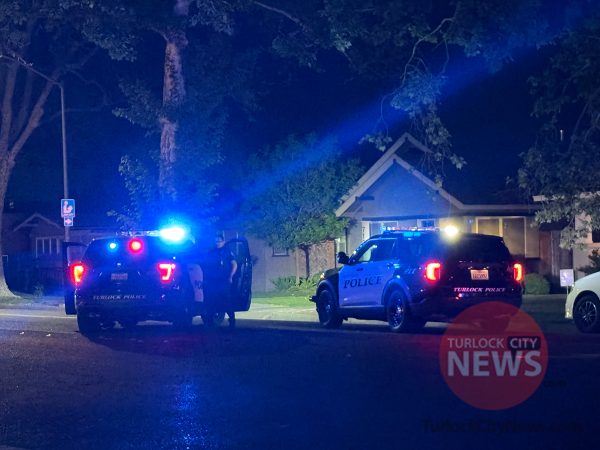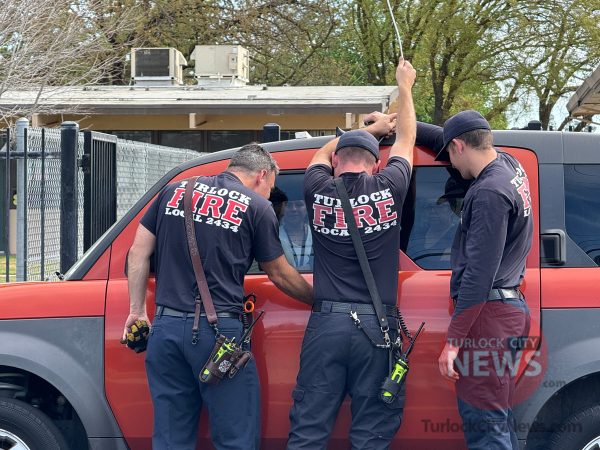With the upcoming primary elections on June 5th, Stanislaus County has a full ballot of candidates and state propositions to consider.
For United States Representative District 10, congressional candidates include farmer and U.S. Representative Jeff Denham (R), Chad Condit (I), who has served in the United States Navy and a Central Valley Representative to the Office of the Governor, Modesto-area farmer, astronaut/scientist/engineer Jose Hernandez (D), Entrepreneur Troy McComak (I), and Lawyer/CPA/Programmer Michael Barkely (D).
State Senator, District 5 candidates include State Legislator Cathleen Galgiani (D), farmer Billy Berryhill (R), and San Joaquin County Supervisor District 5 Leroy Ornellas (R).
State Assembly, District 12 candidates include small business owner Kristin Olsen (R), and Lathrop councilmember and Vice Mayor Christopher Mateo (D). Both candidates focus on Job Creation, creating a balanced budget, and Educational Reform.
State Assembly, District 21 candidates include business owner Jack Mobley (R), Businesswoman Lesa Rasmussen (D), general contractor Robert R. Sellers (D), University Lecturer/Advisor Adam C. Gray (D), and teacher Tommy Jones. (D).
Stanislaus County Board of Supervisors will be holding elections for District 1, District 2, and District 5. District 1 Supervisor Bill O’Brien will be running, uncontested. District 2 Supervisor Vito Chiesa will also be running uncontested. District 5 candidates include farmer/county supervisor Jim DeMartini and Water Resources Engineer Daniel Padilla.
The Stanislaus County Republican and Democratic Party Central Committees of District 3 and District 4 also feature a heaping list of candidates.
Voters will also be faced with two State Propositions, including Proposition 28, which limits on legislators’ term in office, and Proposition 29, which would impose additional taxes on cigarettes for Cancer Research.
Proposition 28
Proposition 28 reduces the total amount of time a person may serve in the state legislature from 14 to 12 years, and allows a person to serve a total of12 years with in the Assembly, the Senate, or a combination of both. The proposition, however, would only apply to legislators first elected after the measure is passed. Legislators elected before the measure is passed would continue to be subject to existing term limits.
A yes vote on Proposition 28 would mean that future members of the State Legislature could serve a total of 12 years in office. A No vote on Proposition 28 would mean the existing term limits for the legislature would remain in place for both current and future legislators, allowing a total of 14 years in office, including a maximum of six years in the State Assembly and 8 years in the State Senate.
Arguments for Proposition 28 include claims that the status quo is no longer working, and that after two decades, the term limits law needs fixing. The 12-year limit on legislators closes the loophole that allows legislators to serve nearly 17 years in office. Proposition 28 is said to help make legislators more accountable.
Arguments in opposition to Proposition 28 claim that the proposition is a scam by special interest groups to trick voters into weakening term limits, claiming that it would actually lengthen, not reduce, terms for politicians in office. It is said to double the time politicians can serve in the State Assembly, and gives a 50% increase of time politicians can serve in the State Senate.
Proposition 29
Proposition 29 would impose an additional five cent tax on each cigarette distributed ($1.00 per pack), and an equivalent tax increase on other tobacco products, to fund cancer research and other purposes. The proposition requires tax revenues be deposited into a special fund to finance research and research facilities focused on detecting, preventing, treating, and curing cancer, heart disease, emphysema, and other tobacco-related diseases, and to finance prevention programs. It would also create a nine-member committee charged with administering the fund.
The net increase in cigarette excise tax revenues of about $735 million annually by 2013-2014 for research in tobacco-related disease, and for tobacco prevention and cessation programs. It would also result in a net increase in state and local sales tax revenues of about $10 million to $20 million annually.
A yes vote on Proposition 29 would increase taxes on cigarettes by $1.00 per pack, resulting in a total of $1.87 per pack tax. These additional revenues would be dedicated to fund cancer research and tobacco-related disease research.
A no vote on Proposition 29 would keep taxes on cigarettes at the current level of 87 cents per pack and would continue to be used for existing purposes, including childhood development programs and various health and tobacco prevention and cessation programs.
Arguments for Proposition 29 come from the American Cancer Society, American Heart Association and American Lung Association as an effort to save lives, stop kids from smoking, and fund cancer research.
Arguments in opposition of Proposition 29 claim that although everyone supports cancer research, Proposition 29 is flawed, stating that although it projects $735 million annually in new taxes, it doesn’t require revenue to be spent in California to create jobs or fund schools. Arguments against the proposition also claim that it creates new government spending bureaucracy with political appointees, duplicating existing programs, with no accountability to taxpayers.
Meausre T
The Stanislaus County Board of Supervisors places measure “T” on the ballot. M
Measure “T” is not a new tax, it merely continues the current one-eigth of a penny sales tax previously approved and renewed by county voters. The funds received from this tax amount to 87% of the money county libraries need to operate each year. The money received from the tax can only be used for libraries. It cannot be taken by the state or county and diverted for other uses.
A yes vote on Measure T will help keep books and materials current, preserve programs families value like story time, help keep success programs to combat illiteracy in the county, maintain services for seniors like large print books and access to computer training, public access to computers and wireless internet, and more.
Most importantly to supporters of Measure T is the dependence the county libraries have on the tax. If Measure T does not pass on the ballot, county library branches may have to close altogether.
May 21 is the last day to register to vote. For more information on candidates and ballot items for Stanislaus County, please visit http://smartvoter.org/2012/06/05/ca/stn/






